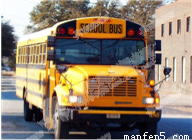题目内容
_______ a big party in our school in two weeks.
A.It is B.It will be
C.There was D.There is going to be
D
【解析】略

Daily habits like eating more healthy food would have kept millions of families from becoming bankrupt(破产)if the patients had taken ways for early prevention. For example, keeping a balanced diet(均衡饮食), such as not consuming too much animal fat and trying to have enough vegetables and fruits, seems to be quite important.
One very effective and costless way of prevention is regular(定期的)exercise, which is necessary for a healthy mind and body. Regular exercise, such as running, walking, and playing sports is a good way to make people feel better.
In addition, health education plays a key role in improving people’s health. By giving people more information about health, countries could help people understand the importance of disease prevention and ways to achieve it. For example, knowing one’s family medical history is an effective way to help keep healthy. Information about health problems among close relatives will make them aware of what they should do to prevent certain diseases through lifestyle changes, which will work before it is too late.
However, paying more attention to disease prevention does not mean medical treatment is unimportant. After all, prevention and treatment are just two different means toward the same effect. In conclusion, we could save money on health care and treat patients more successfully if our country spends more money on health prevention and education.
【小题1】 What’s the meaning of the underlined word “consuming” in Paragraph 2?
| A.Avoiding. | B.Producing. | C.Eating. | D.Cooking. |
| A.Health or Illness? | B.Exercise or Illness? |
| C.Prevention or Education? | D.Prevention or Treatment? |
| A.more health education should be given |
| B.dressing warmly can prevent diseases |
| C.a balanced diet is cheaper than regular exercise |
| D.the government’s health budget should be increased |
There have been many great inventions or things that changed the way we live. The first great invention was the one that is still very important today——the wheel. This made it easier to carry heavy things and to travel long distance.
For hundreds of years after that there were few inventions that had as much effect as the wheel . Then in the early 1800s the world started to change. There was little unknown land left in the world. People didn’t have to explore much any more. They began to work instead to make life better.
In the second half of the 19th century many great inventions were made. Among them were the camera, the light and the radio. These all play a big part in our daily life today.
The first part of the 20th century saw more great inventions. The helicopter in 1909, movies with sound in 1926, the computer in 1928, jet planes in 1930. This was also a time when a new material was first made. Nylon came out in 1935. It changed the kind of clothes people wore.
The middle part of the 20th century brought new ways to help people get over diseases. They worked very well. They made people healthier and allowed them to live longer. By the 1960s most people could expect to live to be at least 60.
By this time most people in developed countries had a very good life. Of course new inventions continued to be made. But man now had a desire(渴望) to explore again. The earth was known to man but the stars were not. Man began looking for ways to go into space. Russia made the first step. Then United States took a step. Since then other countries , including China and Japan, have made their own steps into space.
In 1969 man took his biggest step away from earth. Americans first walked on the moon. This is certainly just a beginning, though. New inventions will some day allow us to do things we have never yet dreamed of.
【小题1】This passage talks mainly about _______________ .
| A.why cars were very important |
| B.when light was invented |
| C.how inventions affect people’s daily life |
| D.which country made the first step into space |
| A.at the beginning of 1800s |
| B.in the 1960s |
| C.since the 1900s |
| D.from the 1800s to 1960s |
| A.radio | B.camera | C.jet planes | D.movies |
| A.doctors | B.new ways |
| C.medicines | D.new hospitals |

